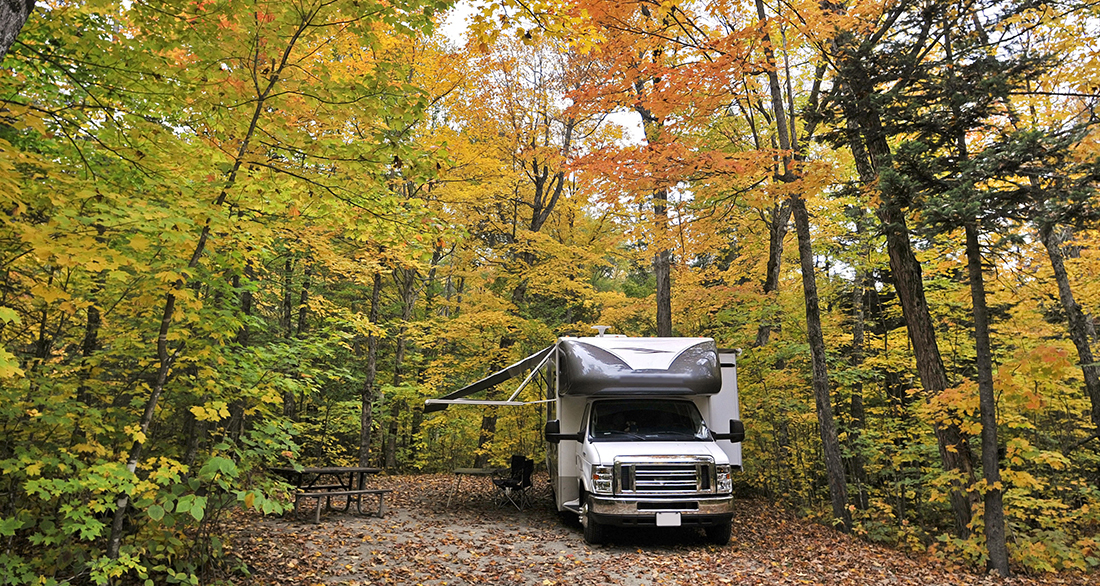RV dry camping basics — always be prepared for the stops away from the campground.
One of the best parts about camping is stepping out of the busy, workaday world and escaping into nature. In the RVing lifestyle, travelers are usually able to enjoy the peace and quiet of a rustic environment and still have access to basic amenities offered at RV parks, like water, sewer and electricity.
However, there may be times when traveling that you won’t have access to campgrounds and RV parks, and it’s essential to dry camp. Whether you’re considering heading into the wilderness for an epic trip or anticipating a few nights without hookups on a parking lot, you’ll want to carefully plan and prepare. This article will walk you through some ways to safely boondock and help you prepare for times when you’re off the grid.
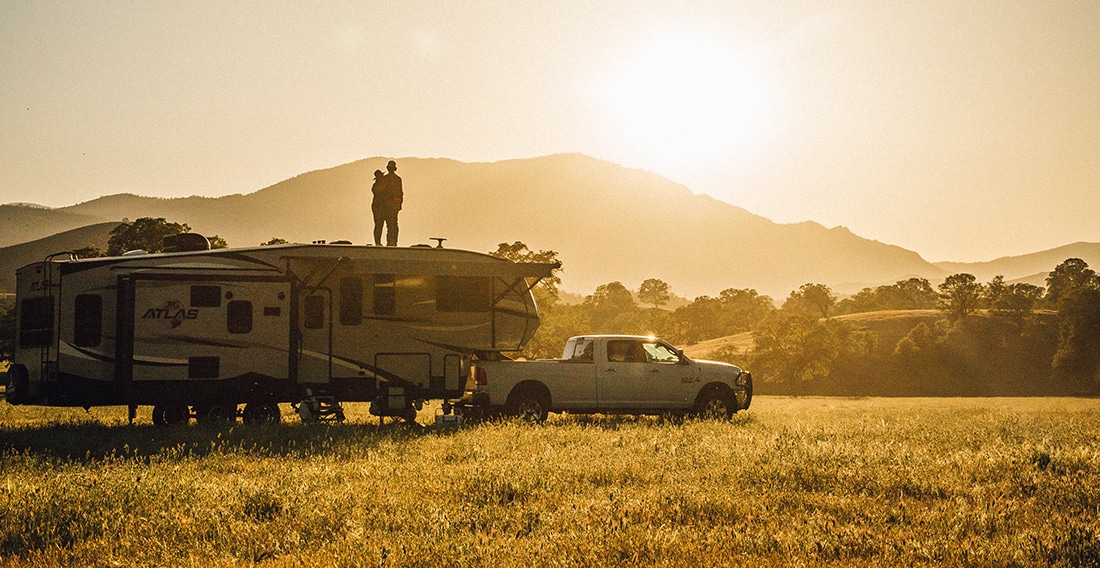
Photo: Dutchmen RV
Scenarios When You’d Need to Dry Camp
If you’re planning on a backpacking trip through a remote wilderness area, your considerations for going off the grid are different from someone traveling by RV. In most cases, families who are camping in a tent or RVing will only be off the grid for a short period of time. There are legitimate reasons when campers will not have access to hookups and will need to dry camp. Those include:
Traveling long distance: If you’re trekking across North America and covering hundreds of miles, there may be certain stretches of road without any campgrounds. If long hours behind the wheel aren’t in the cards, dry camping may be essential. This is especially important if you’re feeling drowsy; you can’t always depend on hot coffee to get you through the next hundred miles of nighttime driving. Find a spot and get the rest you need.
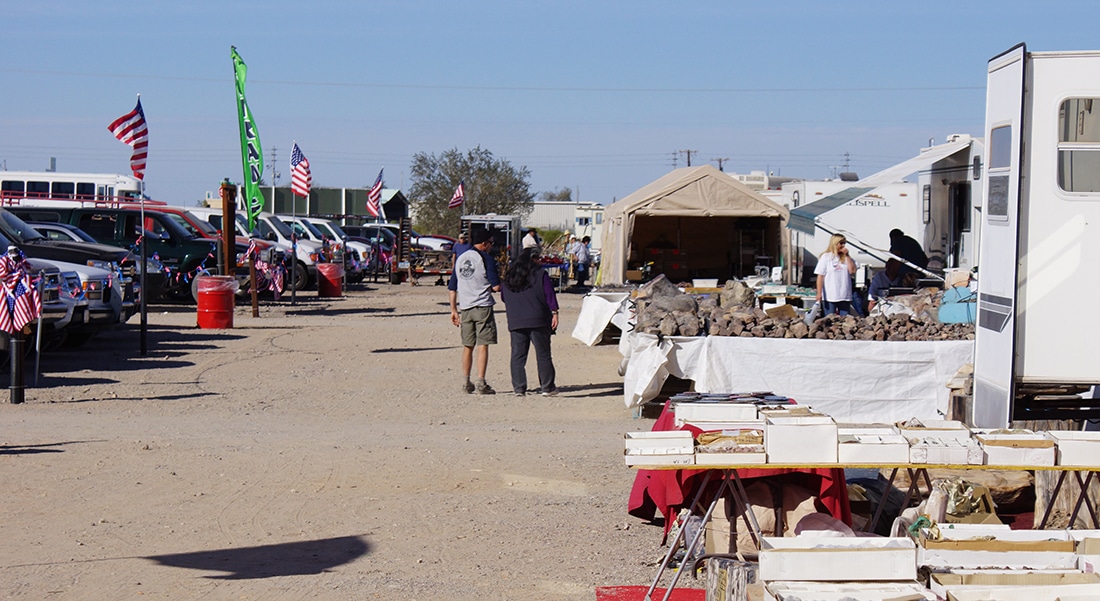
RV vendors set up their wares during a swap meet in Quartzsite, Arizona. Photo: Chris English
Attending an event: Certain festivals and events, like Burning Man or Quartzsite, are located in areas with limited nearby campgrounds. In situations like this, you’d need to dry camp and would not have access to traditional RV hookups.
Staying on a property without RV amenities: When you have an RV, you have a hotel on wheels that allows you to go anywhere and visit anyone. But sometimes you’ll visit friends and family in your RV, but won’t have access to amenities like water, sewer and electricity.
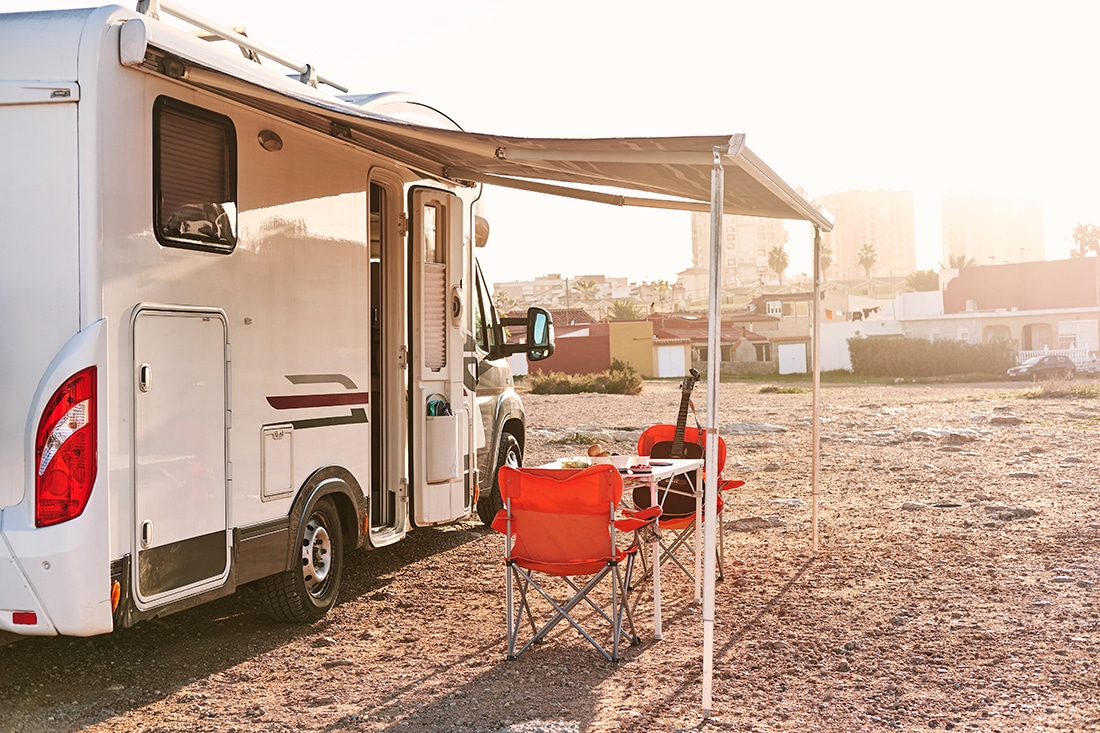
Photo: Getty Images
Natural disasters: RVs come in handy for folks who need to evacuate in the face of wildfires, floods or other catastrophes. RVers in this situation should be prepared to face the challenges that come with being displaced and forced to camp with limited resources. Sometimes, RV parks will accommodate RVing evacuees in dry-camping spots.
What to Consider When Dry Camping
As always, it’s smart to be prepared for any of the above scenarios. You never know when you’re going to lose access to hookups and it’s essential to stay safe and be prepared for the unexpected. Here are some things to consider and a list of tips to help you plan for times when you’re off the grid.
Ensure Adequate Access to Water and Food
When you’re planning your travel route, make sure you know which stretches of road have service stations and food options, and which stretches do not. You’ll want to have enough nonperishable food with you to last the length of your travel. The Good Sam Trip Planner will help you find resources on your route. Consider keeping jerky, nuts and dried fruit on hand so you’ll always have food and snacks when stores aren’t an option.
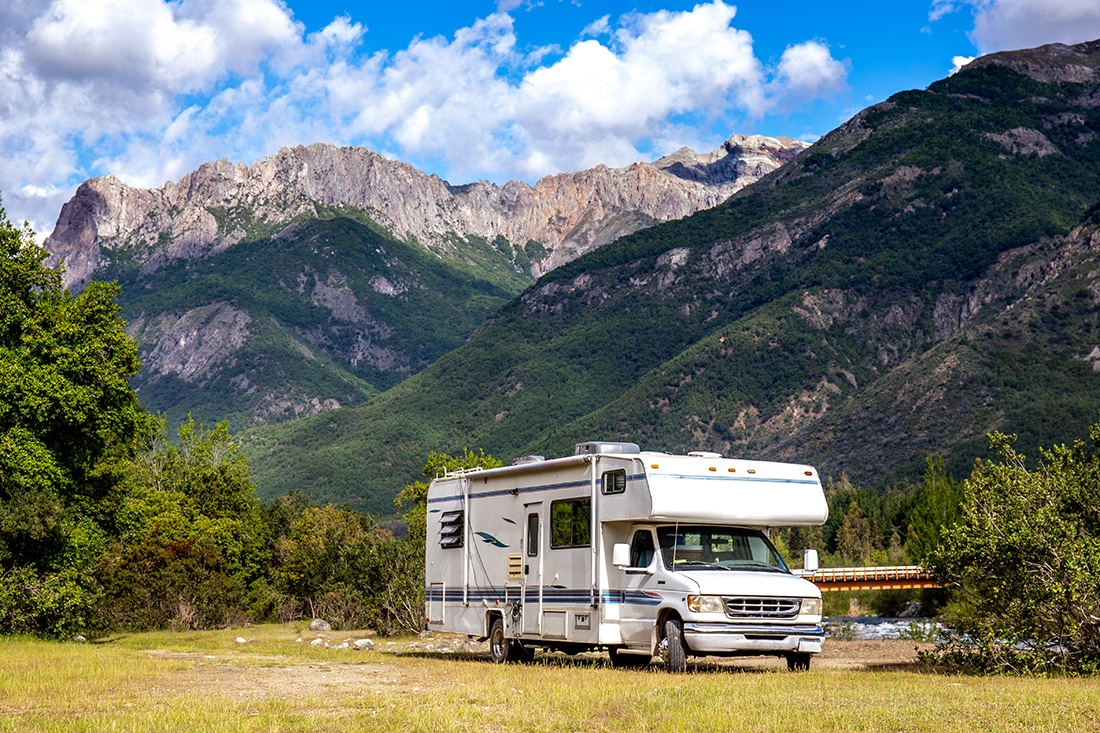
Photo: Good Sam Camping
Know Where You Can Park Your RV Overnight
Not every location is fair game for parking your RV at night. Some retail parking lots allow campers to stay overnight. For example, some Walmart stores allow overnight parking, but it’s up to the discretion of the store manager. Truck stops and travel plazas, likewise, often are a good places to stay overnight when in between campgrounds. Pilot Flying J locations offer overnight camping for RV travelers along with fuel and dump stations to properly dispose sewage. They usually have stores on-site for food purchases. Good Sam Club members enjoy discounts that include 5-cent savings for every gallon of gas and 8 cents for each gallon of diesel. You’ll find Pilot Flying J truck stops throughout the United States and in Canada. You’ll also find dry-camping opportunities on public lands. The Bureau of Land Management, for instance, offers RVing and tent camping on many of its properties.
Keep on Top of Power Needs
Carefully consider which appliance gadgets you can do without and what’s necessary for heating, cooling and cooking. Once you know what you’ll need for power, you can evaluate what you need in terms of a power source.
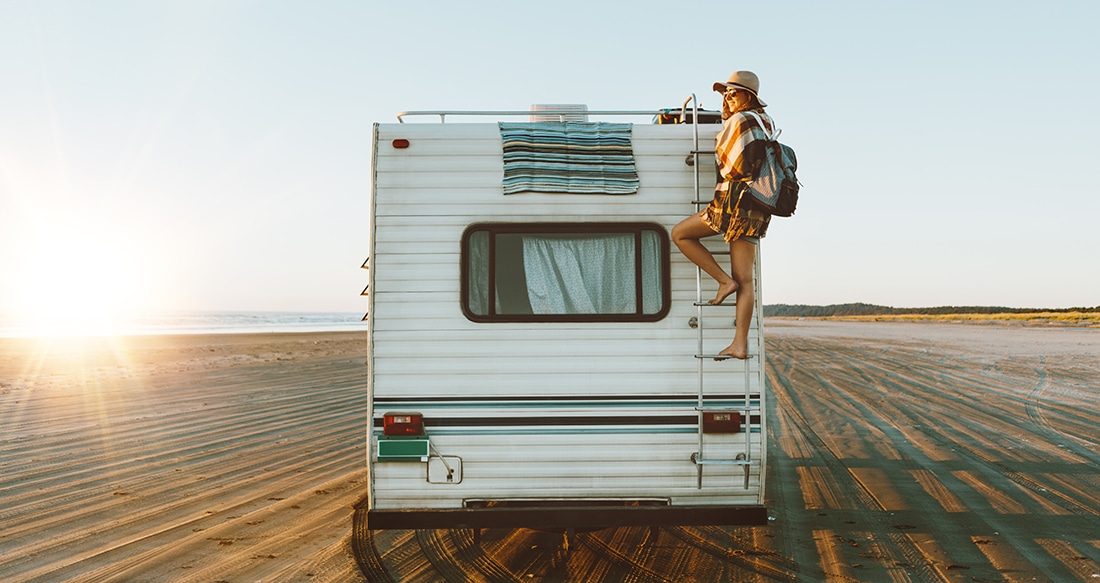
Photo: Getty Images
This means keeping your house batteries charged and maintained. Regular maintenance tasks like keeping terminals clean of corrosion, maintaining water levels, and topping them off on a regular basis will ensure that these batteries are available to power appliances. If you plan on using house batteries to power larger, 120-volt appliances, make sure your inverter is in good working order. If you plan on staying off the grid for an extended amount of time, using solar power is an option worth considering.
Of course, overall maintenance of your RV is critical in all cases, especially when you’re in a remote area where roadside assistance and maintenance are problematic. Follow a basic RV maintenance routine to keep your vehicle in good shape.
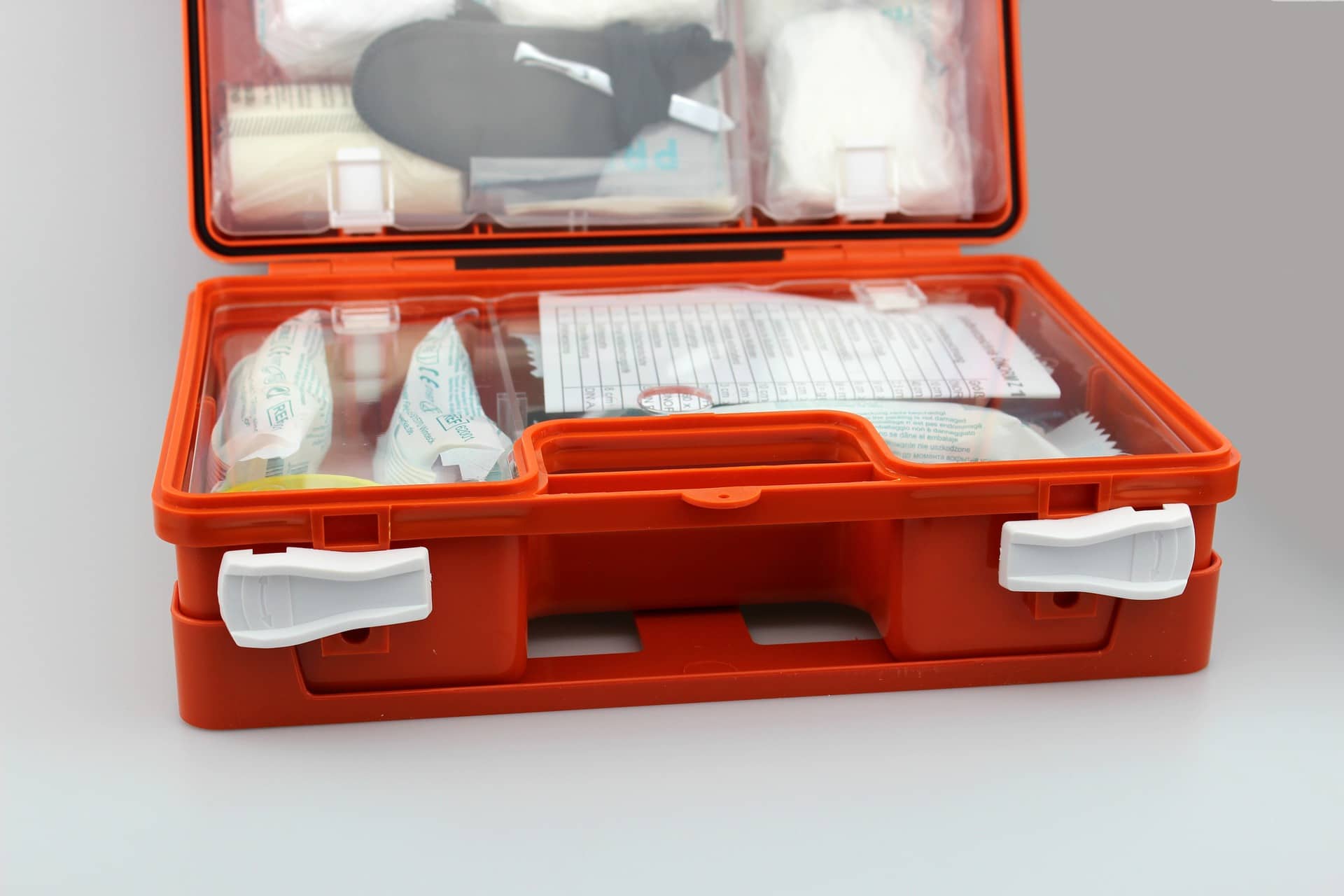
Photo: Getty Images
Prepare for Emergencies
Even the best-laid plans go awry, so be prepared. Having an extensive first-aid kit as well as medical training, including CPR, should be a priority for dry camping situations. You’ll also find several products that enable off-the-grid communications, from directional Wi-Fi antennas to a host of satellite antennas. Make sure that you have access to roadside assistance in the event of an RV breakdown.
Travel safely in your next off-the-grid journey and you’ll appreciate just how resourceful you can be. Then, when it’s time to enjoy the full range of amenities, make a reservation at the nearest Good Sam Park.

